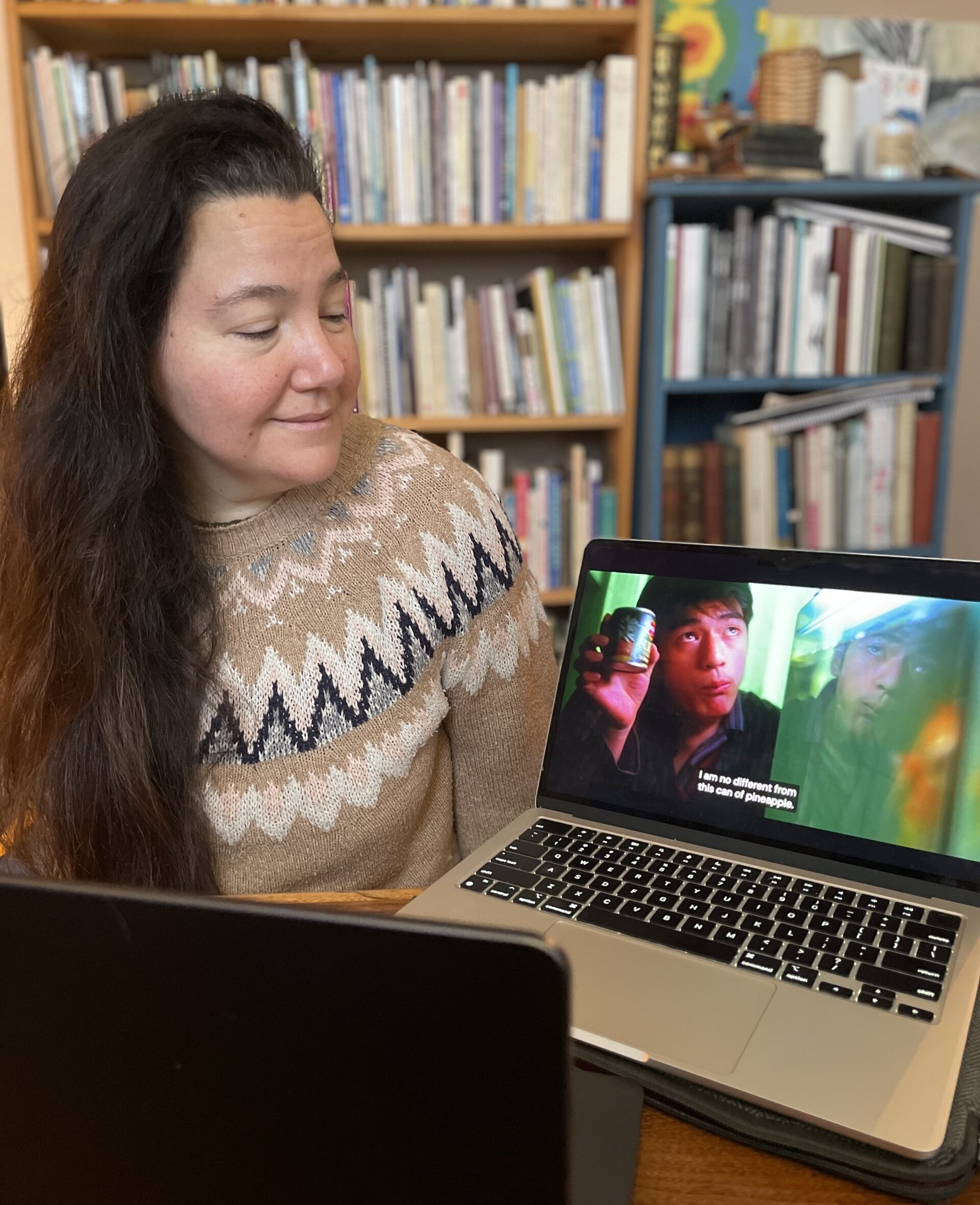“Defamiliarized language is exciting. If I’m only using familiar language, can my poem truly leap?”
“Last Night California” is first and foremost a poem of overhearing. Imagine writing a poem in a café; consider how overhearing the conversations around you can provide a jumping-off point or a turn or even an unexpected landing for your poem. I’ve enjoyed many moments in which an utterance overheard pushed my poem in a new direction. This happens because the utterance pulls me out of my own head, out of my own story, and makes me think about how other people are experiencing our shared world.
When everyone in the room is speaking English, overhearing can function seamlessly, and I’m less likely to make a mistake in my overhearing, less likely to hear language do something I’ve never heard before. Add in some other languages, and overhearing can take on the magical dimensions of mishearing. If I lack fluency, speaking and overhearing/mishearing language can defamiliarize my own language. For example, once when speaking to my Abuela, I explained in Spanish that my town in New Hampshire hosts a bear sanctuary. She looked confused. “Bears protect the town?” she asked. This phrase became the title for one of my poems.
Defamiliarized language is exciting. If I’m only using familiar language, can my poem truly leap? My work is experimental; I often incorporate technology into my process and I seek readers who come to poetry in order to have an experience. The way a poem is created is part of that experience, which is why I try to build my poems in meaningful ways.
When a poet takes a work of art that already exists and uses it as inspiration for a new poem, sometimes describing the work of art in the poem, this is called ekphrasis, and that’s what I had in mind with “Last Night California.” The poem began with the movie Chunking Express, and all the language in the poem comes from the movie. First, I created a source text by playing Chunking Express on one computer while a second computer sitting nearby “listened” and created an imperfect textual rendering using the automatic dictation function in Microsoft Word.
There are six languages spoken in Chunking Express: Cantonese, Mandarin, Japanese, English, Serbian, and Hindi. English was the only language option in Microsoft Word’s automatic dictation function, so all six languages were overheard as English. The resulting text is full of errors and odd moments of humor and beauty. I like to think of the text created by the computer as a mishearing. Chungking Express is an ideal object for this experiment because it is a movie shot through with mishearing.
To create “Last Night California,” I erased almost all of my source text. Maybe there is a poem inside every text, just waiting for someone to see it and set it free. In addition to being an erasure poem, I consider “Last Night California” to be an ekphrastic poem—an overhearing and a poem of homage. In order to pay homage to Wong Kar Wai, I focused on the atmosphere of the poem, the sort of moody weather that makes Chunking Express so distinctive.
Maybe there is a person in your favorite coffee shop saying the most miraculous thing right at this moment. As John Stewart Mill wrote in 1833, “Poetry and eloquence are both alike the expression or utterance of feeling; but, if we may be excused the antithesis, we should say that eloquence is heard; poetry is overheard.” What is an overhearing if not a form of connection? We are all connected to each other and poetry is just one of the ways in which we express this connection.
Rena J. Mosteirin is the author of Disaster Tourism (BOA Editions, forthcoming fall 2025) and Experiment 116 (Counterpath Press, 2021). She is the co-author, with James E. Dobson, of Moonbit (punctum books, 2019) and Perceptron (punctum books, forthcoming 2025). Her novella Nick Trail’s Thumb won the Kore Press Short Fiction Award, judged by Lydia Davis. Her work has been published in the Common, the Rumpus, New York Magazine, the Southampton Review, no tokens, the Puritan, and elsewhere in print and online. Mosteirin is an editor at Bloodroot Literary Magazine, teaches creative writing workshops at Dartmouth College, and owns Left Bank Books, a used bookstore in Hanover, New Hampshire.
Photo of Rena J. Mosteirin courtesy of James E. Dobson.
